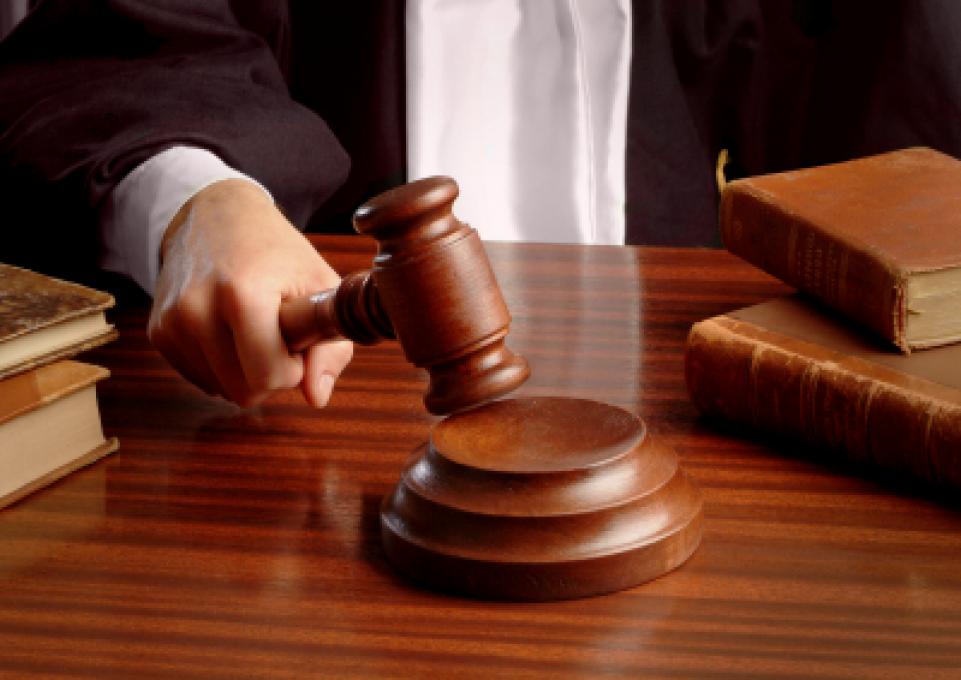
Vanessa never made it home.
The young woman was celebrating her 21st birthday at Chuggie’s Sports Bar. She left with two friends…and now one of them is charged with her murder.
Guilty or not guilty? That’s the question to be argued by defense and prosecution at the second annual Great Lakes Mock Trial Tournament to be held at Buffalo State on February 11 and 12.
“We have 26 teams from 17 universities competing,” said Jon Lines, lecturer of political science and the tournament’s director. “The students are very competitive,” said Lines, “and they welcome this opportunity to improve their skills at presenting persuasive arguments.”
Each team is made up of six students—three serving as attorneys and three serving as witnesses. Two or three judges oversee each trial. The presiding judge rules on objections and evidentiary procedure, and scoring judges rate each student attorney on how skillfully they conduct direct- and cross-examinations and present opening and closing arguments. The witnesses’ testimony is also scored. “Each team acts as defense twice, and as prosecution twice,” said Lines. “The judges offer constructive criticism and advice after each trial, so a team may improve its performance as the weekend progresses.”
Each trial lasts about three hours. “This means 12 hours of trials for the teams over the weekend, not counting the time between trials needed to prepare for the next round,” said Lines. “This is a grueling weekend for all teams and competitors.”
At the end of the four trials, the eight teams with the best win-loss record advance to the next round of competition. The ultimate goal is to advance to the American Mock Trial Association’s National Championship Tournament in April.
“We are very grateful for the always reliable involvement of the legal community,” said Lines. “It’s not only a significant time commitment; it’s also a lot of work, because the students want feedback on their performance. Last year, students were very positive about the judging, thanks to the participation of so many area attorneys, judges, and other members of the legal profession. This year we have about 70 volunteers from the legal community and students from the UB law school who will be serving as judges and evaluators.”Eligible attorneys will be able to earn CLE credits.
Lines identified many attorneys and judges who have agreed to volunteer, including Joseph Marusak and Anthony Rudd, both experienced trial attorneys; Niagara County Court Judge Matthew Murphy; and Buffalo City Court Judge Jeannette Ogden, ’77. “Many others, such as Tom Franczyk, Erie County Court judge and director of the UB law school’s trial technique program, helped us recruit judges,” said Lines. “We can’t thank the volunteers enough for the inspiration they provide to our students.”
